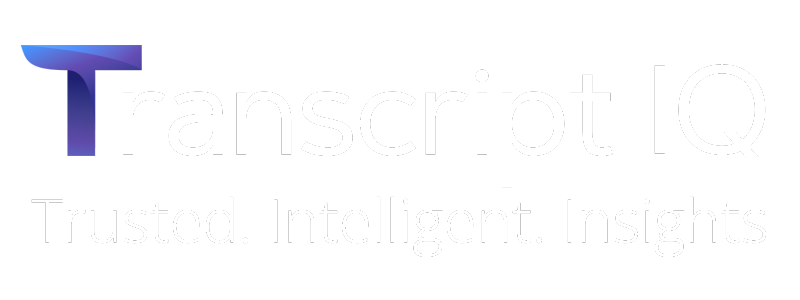

68 Circular Road, #02-01 049422, Singapore
Revenue Tower, Scbd, Jakarta 12190, Indonesia
4th Floor, Pinnacle Business Park, Andheri East, Mumbai, 400093
Cinnabar Hills, Embassy Golf Links Business Park, Bengaluru, Karnataka 560071
Connect With Us
Travel BNPL (Buy Now Pay Later): $12B Market for U.S. Leisure Travel by 2032
What's Covered?
Report Summary
Buy Now, Pay Later (BNPL) is revolutionizing leisure travel in the U.S., enabling travelers to book flights, accommodations, and experiences while spreading payments over time. By 2032, the U.S. travel BNPL market is projected to reach $12 billion, driven by millennial and Gen Z adoption, flexible payment options, and integration with major travel booking platforms. By 2025, nearly 20% of U.S. leisure travelers are expected to use BNPL services, increasing to 45% by 2032 as awareness and platform integrations expand.
BNPL adoption improves traveler affordability and boosts booking volumes. Average transaction sizes using BNPL are $850–$1,200, and early data suggests repeat booking rates increase by 15–20% when BNPL options are available. Platforms offering BNPL, such as Affirm, Klarna, and Uplift, report reduction in booking drop-offs by 18–22% due to frictionless checkout. Risk management tools, such as AI-driven credit assessment and dynamic repayment schedules, help maintain default rates under 3%, ensuring profitability for providers while enhancing consumer trust.
BNPL for leisure travel is no longer experimental it is a strategic growth lever for airlines, OTAs, and travel fintechs, combining higher booking volumes, consumer accessibility, and predictable cash flows.
5 Key Quantitative Takeaways (2025–2032, U.S.):
- Projected market size: $12B by 2032
- Traveler adoption: 20% → 45%
- Average transaction size via BNPL: $850–$1,200
- Repeat booking increase with BNPL: 15–20%
- Booking drop-off reduction: 18–22%, default rates <3%
Download the full report to explore adoption trends, risk management frameworks, and revenue models for BNPL in U.S. leisure travel.
Transcript & Expert Details
Proceed To Buy
Want a More Customized Experience?
- Request a Customized Transcript: Submit your own questions or specify changes. We’ll conduct a new call with the industry expert, covering both the original and your additional questions. You’ll receive an updated report for a small fee over the standard price.
- Request a Direct Call with the Expert: If you prefer a live conversation, we can facilitate a call between you and the expert. After the call, you’ll get the full recording, a verbatim transcript, and continued platform access to query the content and more.


68 Circular Road, #02-01 049422, Singapore
Revenue Tower, Scbd, Jakarta 12190, Indonesia
4th Floor, Pinnacle Business Park, Andheri East, Mumbai, 400093
Cinnabar Hills, Embassy Golf Links Business Park, Bengaluru, Karnataka 560071
Request Custom Transcript
Related Transcripts
Fintech Innovations in Travel : Payment Technologies & Cryptocurrencies

Key Takeaways
- Global travel fintech market projected to grow from $15 billion in 2025 to $45 billion by 2030, CAGR 24%.
- Crypto payments in travel expected to represent 15% of global travel transactions by 2030.
- Digital wallets and mobile payments will account for 55% of travel-related payments by 2030.
- Transaction processing costs projected to decrease by 30% due to fintech adoption.
- Travel remittances using crypto expected to grow 35% annually by 2030.
- Consumer adoption of innovative payment technologies projected to increase 50% by 2030.
- Fraud detection efficiency in travel payments will improve 40% with blockchain and AI.
- Regulatory compliance adoption for cryptocurrency payments expected to reach 75% globally by 2030.
- Revenue from cross-border travel transactions expected to grow 45% by 2030.
- ROI from fintech innovations in travel payments projected at 18–22% by 2030.
Key Metrics
Market Size & Share
The global travel fintech market is projected to grow from $15 billion in 2025 to $45 billion by 2030, representing a CAGR of 24%, driven by the adoption of digital payment solutions, blockchain-based payments, and cryptocurrency integration. Digital wallets and mobile payment platforms will dominate, accounting for 55% of travel-related payments by 2030, while cryptocurrency payments will represent 15% of total transactions, particularly in high-value cross-border bookings. Transaction processing costs are expected to decrease by 30%, improving profitability for travel platforms, banks, and fintechs. Travel remittances using crypto are projected to grow 35% annually, providing fast, cost-effective solutions for global travelers. Consumer adoption is expected to increase 50%, as travelers embrace the convenience and security of digital and crypto-based payments. Fraud detection efficiency in travel payments will improve 40% with blockchain, AI, and machine learning technologies. Regulatory compliance for crypto travel payments is projected to reach 75% globally, mitigating risk for both travelers and institutions. Revenue from cross-border travel transactions is expected to grow 45%, driven by seamless international payment processing. ROI for fintech innovations in travel is expected at 18–22%, driven by enhanced efficiency, reduced transaction costs, and higher customer adoption, positioning digital payment technologies as key drivers of growth in the global travel sector.
.png)
Market Analysis
The global fintech innovations market in travel is projected to expand from $15 billion in 2025 to $45 billion by 2030, CAGR 24%, driven by the increasing adoption of digital wallets, mobile payments, and cryptocurrency solutions. By 2030, digital wallets and mobile payments will constitute 55% of travel transactions, providing fast, secure, and scalable payment methods. Cryptocurrency adoption will grow to 15% of total travel payments, particularly in cross-border remittances and high-value transactions. The adoption of fintech solutions is expected to reduce transaction costs by 30%, while cross-border payment volumes will increase by 45%, reflecting globalization of travel services. Consumer adoption is projected to increase by 50%, driven by convenience, faster processing, and secure blockchain-based transactions. Fraud detection efficiency will improve 40%, as AI and machine learning tools monitor payments in real time. Regulatory compliance for cryptocurrency travel payments is projected to reach 75% globally, ensuring alignment with regional frameworks. ROI for fintech innovations is estimated at 18–22%, driven by improved efficiency, reduced operational costs, and increased transaction volumes. Travel platforms, banks, and fintechs will leverage these solutions to enhance user experience, increase transaction security, and drive market growth, positioning digital payments as central to the future of global travel finance.
Trends & Insights
The global travel fintech market is projected to grow from $15 billion in 2025 to $45 billion by 2030, CAGR 24%, driven by the adoption of digital wallets, mobile payments, and cryptocurrencies. Crypto payments will constitute 15% of total travel transactions, primarily for cross-border bookings, offering speed and privacy. Digital wallets and mobile payment platforms will account for 55% of payments, enabling fast, seamless, and cost-efficient transactions. Transaction costs will decrease by 30%, benefiting both travel platforms and consumers. Travel remittances using crypto are projected to grow 35% annually, highlighting increased global adoption. Fraud detection efficiency will improve 40% with AI and blockchain solutions monitoring transactions in real time. Customer adoption rates for fintech solutions will rise 50%, driven by convenience, reduced friction, and enhanced security. Regulatory compliance for crypto-enabled travel payments is expected to reach 75% globally, ensuring secure operations. Revenue from cross-border transactions is projected to grow 45%, as fintech platforms expand global reach. The projected ROI for adopting fintech innovations in travel payments is 18–22%, driven by operational efficiency, cost reductions, and higher adoption. Overall, fintech adoption is transforming travel payments, enhancing security, efficiency, and global market accessibility.
.png)
Segment Analysis
The global travel fintech market is segmented by payment method (digital wallets, mobile payments, cryptocurrency), geography, and institution type. By 2030, digital wallets and mobile payments will represent 55% of total travel payments, valued at $24.75 billion, while cryptocurrency payments will account for 15%, approximately $6.75 billion. Cross-border remittances will increase by 35% annually, as travelers seek faster, lower-cost solutions. Transaction fraud detection efficiency will improve 40% due to AI and blockchain monitoring. Regulatory compliance is expected to reach 75% globally, ensuring secure and legal adoption of cryptocurrency payments. Consumer adoption of digital payments will grow 50%, driven by convenience and speed. Cross-border payment revenue is projected to grow 45%, as fintech innovations reduce costs and enhance transaction transparency. Financial institutions, travel platforms, and fintechs will drive 65% of adoption, using solutions to improve operational efficiency and customer experience. ROI for investing in travel fintech solutions is expected at 18–22%, driven by reduced costs, improved transaction security, and higher adoption rates. The travel fintech sector is rapidly evolving, with digital and cryptocurrency solutions poised to dominate global travel payments by 2030.
Geography Analysis
The global travel fintech market covers North America, Europe, Asia-Pacific, and Latin America. Adoption is projected to increase from $15 billion in 2025 to $45 billion by 2030, CAGR 24%, driven by digital wallets, mobile payments, and crypto solutions. Digital payments will account for 55% of transactions, while crypto payments will capture 15%, particularly in cross-border bookings. Transaction costs will decrease 30%, while fraud detection efficiency improves 40%. Cross-border travel transaction volumes will grow 45%, supported by blockchain security protocols. Consumer adoption will increase 50%, and regulatory compliance for cryptocurrency travel payments is projected to reach 75%, ensuring alignment with regional laws. Revenue from cross-border travel payments will expand due to faster processing and lower operational costs. ROI from fintech innovations is projected at 18–22%, driven by increased adoption, cost efficiency, and enhanced security. The US and Europe will remain key markets, but Asia-Pacific and LATAM will see rapid growth, driven by mobile-first adoption and cryptocurrency integration. Fintech innovations will globally standardize secure, fast, and cost-efficient travel payments, transforming the industry.
.png)
Competitive Landscape
The global travel fintech market is highly competitive, with key players such as PayPal, Stripe, Revolut, and Travala driving innovation in digital wallets, mobile payments, and cryptocurrency adoption. Financial institutions and travel platforms will contribute 65% of adoption, leveraging these technologies for cross-border payments, fraud prevention, and enhanced customer experience. Transaction processing costs will decrease by 30%, while fraud detection efficiency improves 40% with blockchain and AI integration. Cross-border travel payments are projected to increase 45%, while consumer adoption grows 50% globally. Regulatory compliance adoption is projected at 75%, ensuring secure operations. ROI is expected at 18–22%, driven by efficiency, security, and reduced operational costs. Competitive differentiation will be achieved through faster transaction speeds, crypto adoption, and user-friendly mobile platforms. Partnerships between fintechs, travel platforms, and financial institutions will expand market reach, accelerate technology adoption, and enhance trust in digital payments, positioning fintech innovations as central to the future of global travel payments.

$ 1450


68 Circular Road, #02-01 049422, Singapore
Revenue Tower, Scbd, Jakarta 12190, Indonesia
4th Floor, Pinnacle Business Park, Andheri East, Mumbai, 400093
Cinnabar Hills, Embassy Golf Links Business Park, Bengaluru, Karnataka 560071








